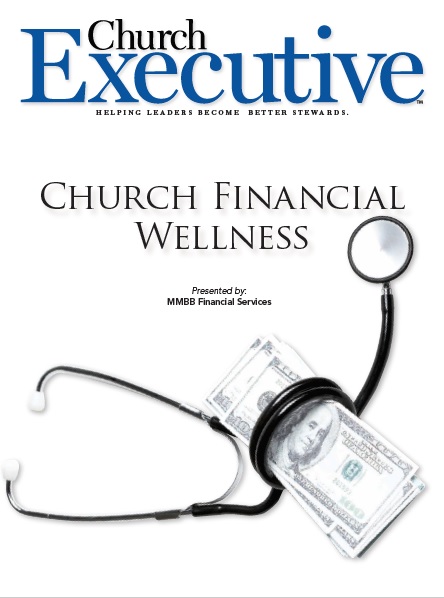
 By Matthew D. Hoffman, CFP®, ChFC®
By Matthew D. Hoffman, CFP®, ChFC®
If you become incapacitated by either illness or injury, who will make your decisions?
This is something that we don’t normally think about, especially if we are young and healthy. But even though it might be a bit unsettling to picture yourself becoming incapacitated, it is a stark reality, especially in light of the enduring pandemic.
An advance directive allows you to communicate your medical preferences and ensure that they are carried out. It might include a living will or a medical power of attorney.

A living will
A living will is an instrument that states your preferences for a variety of likely treatments or procedures that physicians might have to perform, depending on your medical condition.
Usually, these are decisions that physicians must make in an emergency, most often when you are unconscious or incapacitated. These decisions might include:
• Whether you want your physician to perform life-sustaining procedures such as:
• A feeding tube, which might be necessary to provide you with food and hydration necessary to keep you alive.
• Placement on an automatic ventilator, which might be necessary if you are not able to breathe on your own.
• Cardiopulmonary resuscitation (CPR), which might be necessary if your heart stops.
• Removal from artificial life support if you become irreversibly brain dead or if you prefer your doctors to continue using such methods until you die naturally from your heart stopping.
• The length of time you want your doctors to artificially keep you alive if you show little or no possibility of improvement.
• Whether you want complete palliative care or pain relief treatment, even if it means you might die sooner than you otherwise would without the treatment.
• Organ donation after you are deceased or donation of your body for the benefit of medical research.
• Your final wishes either to be buried or cremated.
Making these decisions before you become medically incapacitated might save your physicians time, save you pain and suffering, and spare your loved ones the anguish and stress of having to make these difficult decisions for you.
The procedures for creating a living will vary from state to state. Each state has specific forms that must be completed to indicate your wishes. Any wishes that you clearly convey to your medical care provider in writing will be legally binding unless your doctor has some legal or ethical reason for not carrying out your wishes.
As with normal wills, most states require that the forms be witnessed or notarized.
Although you do not need an attorney to create a valid living will, consulting an attorney — preferably one who specializes in estate planning — will ensure that the rules and procedures required by your state are followed.
“If you are medically incapacitated and do not have an advance directive in place, a court-appointed guardian or a surrogate decision-maker will be responsible for your medical decisions. If you want to be sure that you are in control of your medical decisions, there are only two options …”
Medical power of attorney
A medical power of attorney is another type of advance directive that allows you to direct your physician on how to proceed with your medical care when you are incapacitated, whether or not you have a living will in place.
The major difference between a living will and a medical power of attorney is that instead of making your own decisions about specific medical treatments and procedures, you appoint an agent to make medical decisions on your behalf. To some, it might seem that leaving your medical decisions to someone else restricts your ability to offer your own input; however this is not true if you select the correct person to represent your wishes. The medical power of attorney then becomes a comprehensive, more manageable method of stating your preferences because it legally authorizes your agent to make decisions on your behalf for any medical issue or question that might arise, rather than just the limited issues that you might have addressed in your living will.
When selecting an agent for your medical power of attorney, it is important to appoint someone with the qualities necessary to see that your wishes are carried out. The person should be:
Trustworthy. You will want someone who you can trust to make your wishes known, even though what you want might not be what they want for you. Although a likely choice, a spouse or child might find it difficult to make the decision to remove you from life support or to deescalate life-sustaining procedures. You want someone who will be capable of making these difficult decisions the way you would decide them for yourself.
Familiar with your wishes. You must choose an agent who knows you well and with whom you have discussed these issues. You must choose someone who will be able to put their own feelings aside and insist that your wishes be carried out, even if it is contrary to their own wishes.
Always appoint an alternative agent in your medical power of attorney, in case your primary agent predeceases you, is not available, or is unable to serve in this capacity for any reason.
Like a living will, your medical power of attorney must be in writing, signed and notarized, and in accordance with any other requirements of your state. You might wish to consult an attorney familiar with the laws in your state for assistance with this important document.
Your advance directive, either your living will or medical power of attorney, should be provided to your physicians, your family and close friends, and your own attorney if you have one.
If you are medically incapacitated and do not have an advance directive in place, a court-appointed guardian or a surrogate decision-maker will be responsible for your medical decisions. If you want to be sure that you are in control of your medical decisions, there are only two options: you must have an advance directive in the form of a living will if you want to make your decisions or a medical power of attorney if you want someone you choose to make your decisions for you.
If none of these advance directives are in place, the likelihood is that someone who does not know you or your wishes will make your life and death decisions should you become medically incapacitated.
Matthew D. Hoffman, CFP®, ChFC® is Chief Client Services Officer and is also an officer of MMBB Financial Services serving as Corporate Secretary. Hoffman has worked extensively in the financial services industry.
Prior to joining MMBB, Hoffman was a vice president at JPMorgan Chase and a financial advisor in the private client group at Merrill Lynch.



We have done what we call End Of Life Conferences 2 times a year at our church for the past 25 years where we have professionals come in from the medical profession explaining the reason for Advance Directives and the proper state forms in our state to use provided free from the state department of aging. We have two notaries in house to notarize each set of forms with at least 6 typist at each conference where they can have the proper forms done and completed by the end of the conference. We have professionals from the funeral industry who are here to explain what a person can do ahead of time to ease the burden on their loved ones but are not allowed to sale anything at the conference. If a family or person chooses to make an appointment with the company they may do so through the scheduler from that company on hand at the conference. We also have an attorney on hand for a session on the need for legal General Power of Attorney forms and we have the proper state forms on hand they may have done before leaving the conference. These are highly attended conferences and we normally have fully signed conference that we limit to 150 persons. We serve a supper meal with light entertainment following the meal so that our helpers can finish all the forms before the people leave. If we cannot get to them we have them come by the next afternoon to pick up the completed forms. Believe me this makes my life as a pastor so much easier at the time of death if all of the prior arrangements have been done with the funeral home of choice. If a member is hospitalized the advance directive forms being on file make things less stressful on the family members because they and the discord and hospitals or even the EMT’S have access to a billfold or pocket book size legal copy of all forms. Great article and keep up the good work; by the way our forms are legal in all 50 states which helps as we are an almost 100% military Church located exactly 2 miles from the main gate of Ft Campbell KY. Home of the 101st Screaming Eagles, 160th NightStalkers, Navy Seal Teams, 327th Rakisans, 5th Special Forces, and the Green Berets along with others. We do not keep copies on file normally, but there are members who ask us to maintain copies and several with no family ask me to be their medical advocate and hold their power of attorney. I try everything I can to not be that person but I do assist some persons due to their circumstances. God bless all who promote Advanced Directives, it may not be Biblical to some persons, but my Bible says to meet the need of our brothers and sisters in Christ.
Because of Him,
Rev. DR. Kim Allen